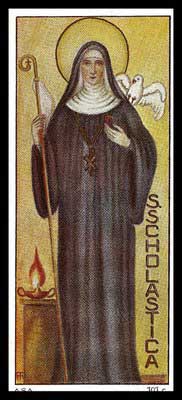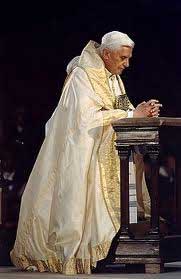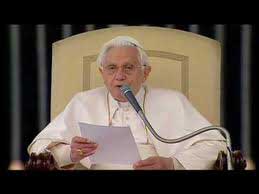[powerpress]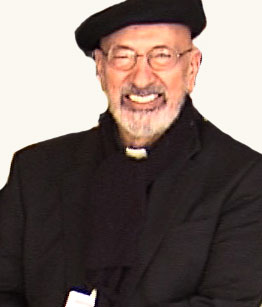 Prayer is assumed as something we know how to do, but do we? The Church has been constantly teaching her children throughout the ages. The Mass, of course, is our central act of prayer. Â But to truly deepen our prayer, even our worship in the Mass, we must appreciate who God is. God is a Trinity, He revealed Himself to us. He is Three Persons in One God. We experience and express their relationship when we pray “Glory be to the Father, Glory be to the Son,
Prayer is assumed as something we know how to do, but do we? The Church has been constantly teaching her children throughout the ages. The Mass, of course, is our central act of prayer. Â But to truly deepen our prayer, even our worship in the Mass, we must appreciate who God is. God is a Trinity, He revealed Himself to us. He is Three Persons in One God. We experience and express their relationship when we pray “Glory be to the Father, Glory be to the Son, 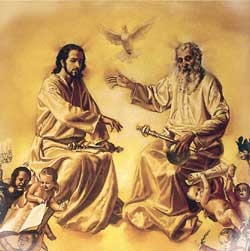 Glory be the Holy Spirit, as it was in the beginning, is now and ever shall be world without end”. When we pray “Glory be to the Father”, He really hears us…He is present, He is truly with you. What does that mean when we pray? It is a relationship. The same is true in relation to the Son and the Holy Spirit. Msgr. Esseff, in this first lesson on prayer, breaks this open in a very deep and important way…the importance of Trinity and presence. Msgr. Esseff also begins an introduction to the importance of the Liturgy of the Hours and the Psalms.
Glory be the Holy Spirit, as it was in the beginning, is now and ever shall be world without end”. When we pray “Glory be to the Father”, He really hears us…He is present, He is truly with you. What does that mean when we pray? It is a relationship. The same is true in relation to the Son and the Holy Spirit. Msgr. Esseff, in this first lesson on prayer, breaks this open in a very deep and important way…the importance of Trinity and presence. Msgr. Esseff also begins an introduction to the importance of the Liturgy of the Hours and the Psalms.
Be sure to visit Msgr. Esseff’s website: Â “Building A Kingdom of Love“
Tags: catholic, catholic podcast, catholic prayer, cathollc spirituality, John Esseff, Trinity
This entry was posted on Sunday, February 12th, 2012 at 8:40 pm
You can follow any responses to this entry through the RSS 2.0 feed.
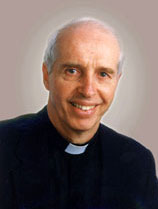
First Reading and Psalm
Leviticus 13:1-2, 44-46
Psalm 32:1bb-2, 5, 11
The Second Reading, 1 Corinthians 10:31; 11:1
The Gospel, Mark 1:40-45
Tags: catholic, catholic podcast, catholic prayer, cathollc spirituality, Fr. Francis Martin, Francis Martin, gospel of mark, Psalm Leviticus
This entry was posted on Saturday, February 11th, 2012 at 7:50 am
You can follow any responses to this entry through the RSS 2.0 feed.
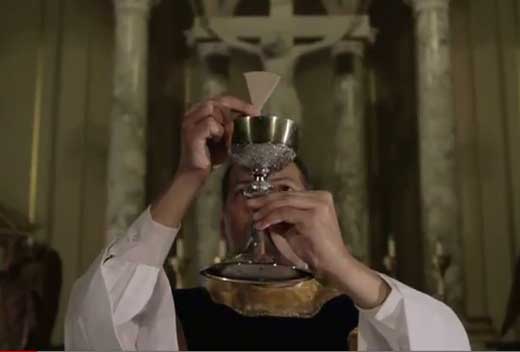 This video is BREATHTAKING. A POWERFUL CELEBRATION OF PRIESTHOOD. All praise and thanks to you, Our Loving Father in Heaven, for the great gift of Holy Orders and in particular for the priesthood! Thank you to all at the Institute for Priestly Formation.
This video is BREATHTAKING. A POWERFUL CELEBRATION OF PRIESTHOOD. All praise and thanks to you, Our Loving Father in Heaven, for the great gift of Holy Orders and in particular for the priesthood! Thank you to all at the Institute for Priestly Formation.
Tags: A Celebration, catholic, catholic podcast, catholic prayer, cathollc spirituality, institute for priestly formation, priesthood
This entry was posted on Saturday, February 11th, 2012 at 7:36 am
You can follow any responses to this entry through the RSS 2.0 feed.
It’s been a fantastic journey to enter into the life Dietrich Bonhoeffer through the writing of Eric Metaxas. “Bonhoeffer: Pastor, Martyr, Prophet, Spy”  is a deeply moving telling of the life of the German Lutheran theologian and pastor who would face the leviathan of evil known as the Third Reich in Nazi Germany. In reading this work, I was reminded of the young man several years ago in Tiananmenin Square who stood before the tank during the protests. It doesn’t surprise me that Archbishop Chaput would highly recommended this book as well as the “witness” of this Christian man who was a voice for those who could not speak. He did what St. Paul called us all to do…to stand. Eric Metaxas does a great job bringing this biography to life and giving us the greater context
is a deeply moving telling of the life of the German Lutheran theologian and pastor who would face the leviathan of evil known as the Third Reich in Nazi Germany. In reading this work, I was reminded of the young man several years ago in Tiananmenin Square who stood before the tank during the protests. It doesn’t surprise me that Archbishop Chaput would highly recommended this book as well as the “witness” of this Christian man who was a voice for those who could not speak. He did what St. Paul called us all to do…to stand. Eric Metaxas does a great job bringing this biography to life and giving us the greater context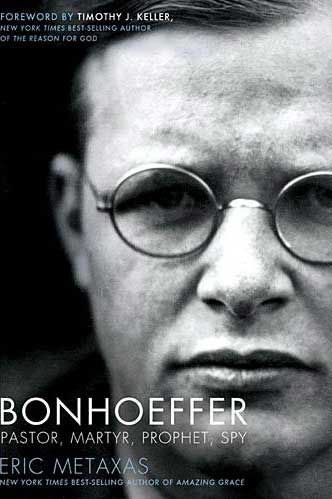 of his witness.
of his witness.
[powerpress]
Visit www.ericmetaxas.com to learn more
Here is another interview that Bruce and I had  wi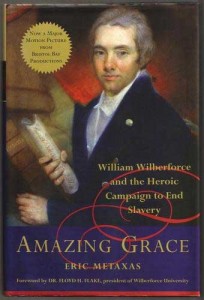 th Eric about William Wilberforce in his book “Amazing Grace” [powerpress url=”http://www.old.discerninghearts.com/Morning%20Show/Eric%20Metaxas%20Amazing%20Grace.mp3″]Download(right click  & choose “Save Link As”)
th Eric about William Wilberforce in his book “Amazing Grace” [powerpress url=”http://www.old.discerninghearts.com/Morning%20Show/Eric%20Metaxas%20Amazing%20Grace.mp3″]Download(right click  & choose “Save Link As”)
Tags: archbishop chaput, catholic, catholic podcast, catholic prayer, cathollc spirituality, dietrich bonhoeffer, eric metaxas, lutheran theologian, martyr, nazi germany, third reich, william wilberforce
This entry was posted on Friday, February 10th, 2012 at 12:51 am
You can follow any responses to this entry through the RSS 2.0 feed.
Litany of Saint Scholastica
Origin of this litany unknown, but in all details it follows the constant practice and pattern of Medieval litanies; this translation is from St. Benedict’s Manual (1875, 1879, Frederick Pustet). Note the invocation “prevented by the grace of Christ Our Lord,” a now archaic use of “prevented” but which once meant to be helped or succored.
Lord have mercy on us. Lord have mercy on us. Christ have mercy on us. Christ have mercy on us. Lord have mercy on us. Lord have mercy on us. Christ hear us. Christ graciously hear us.
God the Father of Heaven, Have mercy on us. God the Son, Redeemer of the world, Have mercy on us. God the Holy Ghost, Have mercy on us. Holy Trinity, one God, Have mercy on us.
Holy Mary, Pray for us. Holy Mother of God, Pray for us. Holy Virgin of virgins, Pray for us. Saint Scholastica, Pray for us. St. Scholastica, true sister of St. Benedict, Pray for us. St. Scholastica, chosen by God from eternity, Pray for us. St. Scholastica, prevented by the grace of Christ Our Lord, Pray for us. St. Scholastica, consecrated to God from thy infancy, Pray for us. St. Scholastica, always a virgin incorrupt, Pray for us. St. Scholastica, espoused to Jesus Christ, Pray for us. St. Scholastica, scholar of the Holy Ghost, Pray for us. St. Scholastica, mirror of innocence, Pray for us. St. Scholastica, model of perfection, Pray for us. St. Scholastica, pattern of virtues, Pray for us. St. Scholastica, glory of the monastic life, Pray for us. St. Scholastica, mother of numberless virgins, Pray for us. St. Scholastica, imitator of the angelic life, Pray for us. St. Scholastica, full of faith in God, Pray for us. St. Scholastica, replenished with hope of the goods of heaven, Pray for us. St. Scholastica, ever burning with the love of thy Spouse, Pray for us. St. Scholastica, resplendent with humility, Pray for us. St. Scholastica, trusting as a daughter in the Lord, Pray for us. St. Scholastica, intent on prayer, Pray for us. St. Scholastica, quickly heard by the Lord, Pray for us. St. Scholastica, famed for the praise of perseverance, Pray for us. St. Scholastica, who didst enter the courts of Heaven in the form of a dove, Pray for us. St. Scholastica, who dost now follow the Lamb whithersoever He goeth, Pray for us. St. Scholastica, who dost rejoice in delights of thy Spouse for ever, Pray for us. St. Scholastica, adorned with a crown of glory, Pray for us. St. Scholastica, advocate with God of those who invoke thee, Pray for us. St. Scholastica, generous patron of those who imitate thee, Pray for us. St. Scholastica, holy and innocent virgin, Pray for us.
We sinners: Beseech thee, Saint Scholastica, to hear us.
That thou deign to help us, by thy most holy and efficacious prayers to God, We beseech thee, hear us. That thou deign to cherish and preserve, by thy protection, the Benedictine Order (and this monastery) and all who dwell therein, We beseech thee, hear us. (That thou admit us into the number of thy children,) We beseech thee, hear us. That thou deign to raise up, increase, and preserve our devotion toward thee, We beseech thee, hear us. (That thou deign to preserve in us the perfect observance of the Rule of thy blessed brother, our most holy Father Saint Benedict,) We beseech thee, hear us. That thou deign by thy supplications, to moisten the dryness of our hearts with the dew of heavenly grace, We beseech thee, hear us. That, by thy intercession, thou mayest eternally unite us to Christ, the Spouse of our souls, We beseech thee, hear us. That thou mayest lead us to eternal joys, and to Jesus, (our most sweet Spouse), We beseech thee, hear us. That thou wouldst vouchsafe to hear us, We beseech thee, hear us.
Lamb of God, Who takest away the sins of the world: Spare us, O Lord. Lamb of God, Who takest away the sins of the world: Graciously hear its, O Lord. Lamb of God, Who takest away the sins of the world: Have mercy on us.
V. Pray for us, O holy Virgin Scholastica: R. That we may be made worthy of the promises of Christ.
Let us pray. O God, Who, to show the innocence of her life, didst cause the soul of Thy blessed Virgin Scholastica to ascend to Heaven in the form of a dove: grant, we beseech Thee, by her merits and prayers, that we may live so innocently, as to deserve to arrive at eternal joys. Through Jesus Christ, Thine only-begotten Son, Our Lord, Who with Thee and the Holy Ghost liveth and reigneth, God, for ever and ever. R. Amen.
Prayer Source: Kyrie Eleison — Two Hundred Litanies by Benjamin Francis Musser O.F.M., The Magnificat Press, 1944
Tags: catholic, catholic podcast, catholic prayer, cathollc spirituality, Saint Scholastica, st scholastica
This entry was posted on Friday, February 10th, 2012 at 12:39 am
You can follow any responses to this entry through the RSS 2.0 feed.
Episode 4 The Daily Prayer of Discernment: The Ignatian Wisdom of the Examen Prayer with Fr. Timothy Gallagher.
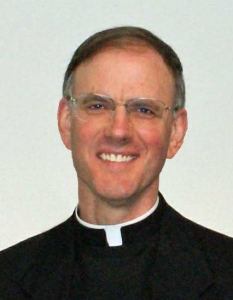  The third step – REVIEW – this is point where the “Discernment of Spirits – the 14 Rules” and the Examen intersect.  With  God, we review the day. We look for the stirrings in our hearts and the thoughts that God has given us this day. We also look for those that have not been of God. IWe review our choices in response to both, and throughout the day in general.
 The third step – REVIEW – this is point where the “Discernment of Spirits – the 14 Rules” and the Examen intersect.  With  God, we review the day. We look for the stirrings in our hearts and the thoughts that God has given us this day. We also look for those that have not been of God. IWe review our choices in response to both, and throughout the day in general.
[powerpress]
As outlined from the Spiritual Exercises of St. Ignatius of Loyola
(translated from the autograph by Fr. E. Mullan, S.J. Â 1909Â in the public domain)
METHOD FOR MAKING THE GENERAL EXAMEN
It contains in it five Points.First Point. The first Point is to give thanks to God our Lord for the benefits received.
Second Point. The second, to ask grace to know our sins and cast them out.
Third Point. The third, to ask account of our soul from the hour that we rose up to the present Examen, hour by hour, or period by period: and first as to thoughts, and then as to words, and then as to acts, in the same order as was mentioned in the Particular Examen.
Fourth Point. The fourth, to ask pardon of God our Lord for the faults.
Fifth Point. The fifth, to purpose amendment with His grace.OUR FATHER.
Father Timothy M. Gallagher, O.M.V., was ordained in 1979 as a member of the Oblates of the Virgin Mary, a religious community dedicated to retreats and spiritual formation according to the Spiritual Exercises of St. Ignatius. Â Fr. Gallagher is featured on the EWTN series “Living the Discerning Life: Â The Spiritual Teachings of St. Ignatius of Loyola”. Â For more information on books and audio available for purchase from Fr. Timothy Gallagher check out his website: www.frtimothygallagher.org
For the other episodes in this series check out
Fr. Timothy Gallagher’s “Discerning Hearts†page
Tags: catholic, catholic podcast, catholic prayer, cathollc spirituality, discernment of spirits, Timothy Gallagher
This entry was posted on Thursday, February 9th, 2012 at 12:49 am
You can follow any responses to this entry through the RSS 2.0 feed.
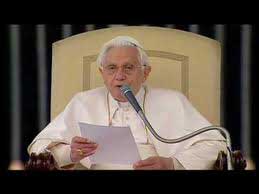
Vatican City, 8 February 2012 (VIS) – The prayer of Jesus at the moment of His death, as narrated by St. Mark and St. Matthew was the theme of Benedict XVI’s catechesis during his general audience, held this morning in the Paul VI Hall.
Yet, the Holy Father asked, “what is the meaning of Jesus’ prayer? The cry addressed to the Father: ‘my God, my God, why have you 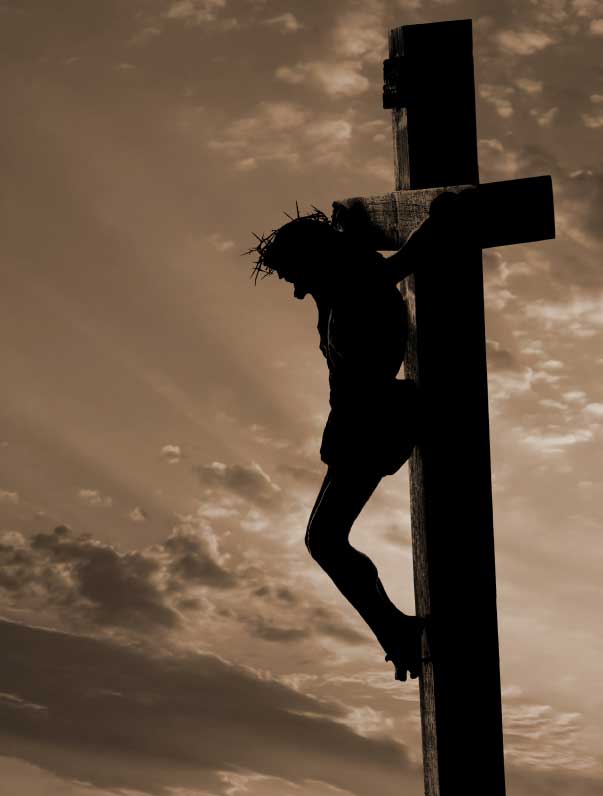 forsaken me?'” He explained that “the words Jesus addresses to the Father are the beginning of Psalm 22, in which the Psalmist expresses the tension between, on the one hand, being left alone and, on the other, the certain knowledge of God’s presence amongst His people. … The Psalmist speaks of a ‘cry’ to express all the suffering of his prayer before the apparently absent God. At moments of anguish prayer becomes a cry.
forsaken me?'” He explained that “the words Jesus addresses to the Father are the beginning of Psalm 22, in which the Psalmist expresses the tension between, on the one hand, being left alone and, on the other, the certain knowledge of God’s presence amongst His people. … The Psalmist speaks of a ‘cry’ to express all the suffering of his prayer before the apparently absent God. At moments of anguish prayer becomes a cry.
“This also happens in our own relationship with the Lord”, the Pope added. “In the face of difficult and painful situations, when it seems that God does not hear, we must not be afraid to entrust Him with the burden we are carrying in our hearts, we must not be afraid to cry out to Him in our suffering”.
“Jesus prays at the moment of ultimate rejection by man, at the moment of abandonment. However, He is aware that God the Father is present even at the instant in which He is experiencing the human drama of death. Yet nonetheless, a question arises in our hearts: how is it possible that such a powerful God does not intervene to save His Son from this terrible trial?”
The Holy Father explained that “it is important to understand that the prayer of Jesus is not the cry of a person who meets death with desperation, nor that of a person who knows he has been abandoned. At that moment Jesus appropriates Psalm 22, the Psalm of the suffering people of Israel, at that moment He takes upon Himself not only the suffering of His people, but also that of all men and women oppressed by evil. … And He takes all this to the heart of God in the certainty that His cry will be heard in the resurrection. … His is a suffering in communion with us and for us, it derives from love and carries within itself redemption and the victory of love.
“The people at the foot of Jesus’ cross were unable to understand, they thought His cry was a supplication to Elijah. … We likewise find ourselves, ever and anew, facing the ‘today’ of suffering, the silence of God – many times we say as much in our prayers – but we also find ourselves facing the ‘today’ of the Resurrection, of the response of God Who took our sufferings upon Himself, to carry them with us and give us the certain hope that they will be overcome”.
“In our prayers”, the Holy Father concluded, “let us bring God our daily crosses, in the certainty that He is present and listens to us. The cry of Jesus reminds us that in prayer we must cross the barrier of ‘self’ and our own problems, and open ourselves to the needs and sufferings of others. May the prayer of the dying Jesus on the cross teach us to pray with love for so many brothers and sisters who feel the burden of daily life, who are experiencing moments of difficulty, who suffer and hear no words of comfort, that they may feel the love of God Who never abandons us.
Tags: catholic, catholic podcast, catholic prayer, cathollc spirituality, pope benedict xvi, psalm 22
This entry was posted on Wednesday, February 8th, 2012 at 8:21 am
You can follow any responses to this entry through the RSS 2.0 feed.
The Teaching Authority of the Church
[powerpress]
Many scoff at the Church’s precepts and rules, and can’t fathom how our relationship with the Church could affect our relationship with Christ.
Let us remember that the high priests of Israel, due to their office, could inquire of the Lord.  And recall Caiaphas’ prophecy about Jesus’ 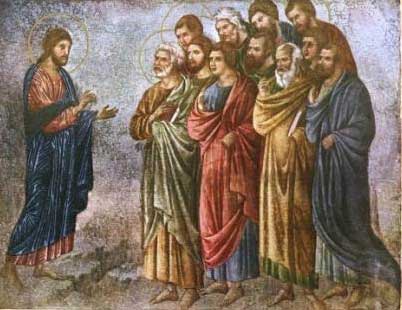 mission, which John 11 states was not said of his own accord, but in virtue of his being high priest that year.1
mission, which John 11 states was not said of his own accord, but in virtue of his being high priest that year.1
Our Lord upheld the legitimacy of the teaching office when He said in Matthew 23, “the scribes and the Pharisees sit on Moses’ seat, so practice and observe whatever they tell you,â€Â 2 though He quickly warned not to follow their bad example.
Jesus commissioned His apostles to be the leaders of His Church.  He told them, “As the Father sent me, so I send you,â€3 and “He who hears you hears me and he who rejects you rejects me.â€4
The popes and bishops of the Catholic Church succeed the apostles in their teaching office,5Â and it is they who, over the centuries, have passed on the Faith to us through creeds, Church councils, even Scripture itself.
We are called to accept the Church’s teachings with joy,6 knowing that the Church is a good mother who desires our eternal happiness—and, after all, who could reject his own mother?
1Â -Â Â Jn. 11:50
2Â -Â Â Mt. 23:2
3Â -Â Â Jn. 20:21
4Â -Â Â Lk. 10:16
5 -  See The Catechism of the Catholic Church 77, 861-2.
6 -  cf. Vatican II, Lumen Gentium 25
Tags: catholic, catholic church, catholic podcast, catholic prayer, cathollc spirituality, Church The Teaching Authority, teaching authority
This entry was posted on Wednesday, February 8th, 2012 at 7:41 am
You can follow any responses to this entry through the RSS 2.0 feed.
Special Episode- Regnum Novum: Bringing forth the New Evangelization through Catholic Social Teaching with Omar Guiterrez – The recent decision by the Department of Health and Human Services and its implications on Catholic Social Teaching. Â How is the Catholic to understand this?
– The recent decision by the Department of Health and Human Services and its implications on Catholic Social Teaching. Â How is the Catholic to understand this?
[powerpress]
We encourage you to visit “Regnum Novum – A New Kingdom: A Revolution” Omar Guiterrez’s blog site
 From Omar’s blog post entitled “A Primer On the HHS Rule, What You Need to Know”
From Omar’s blog post entitled “A Primer On the HHS Rule, What You Need to Know”
What the Obama Administrations Health and Human Services Department (HHS) has done is an attack, which is why Catholics need to be well-informed about what is going on so that they can tell their neighbors about it. So, here are the facts….click here.
Also visit Omar’s “Discerning Hearts” page Catholic Social Teaching 101
Tags: catholic, catholic podcast, catholic prayer, catholic social teaching, cathollc spirituality, Omar Guiterrez
This entry was posted on Tuesday, February 7th, 2012 at 8:56 am
You can follow any responses to this entry through the RSS 2.0 feed.
[powerpress = “Vatican_Radio”]
Another program from Vatican Radio and the insightful Veronica Scarisbrick:
Charles Dickens ‘s grave lies in Westminster Abbey , in Poet’s Corner.
Here two centuries after his birth on the 7th February 1812 he was remembered in a special way .
But above all this great English 19th century novelist has not gone out of print in people’s hearts and minds .
Not perhaps for the prayers he wrote , some of which focused around supplications on behalf of the poor, the sick, the destitute but for the larger than life characters he invented, among them many children from hungry orphan Oliver Twist to lonely little Nell. His hallmark humanity and compassion sometimes even crossed paths with our parables , for example that of the ‘Prodigal Son’ which he once referred to as the “most beautiful story ever told”.
But while eighty years ago G.K. Chesterton another English novelist proclaimed Dickens as ‘almost Catholic ‘and others still claimed him as ‘almost Marxist’ , what’s certain is that his 200th birthday is something you cannot ‘bah humbug’ .
So why don’t we remember him here at Vatican Radio with a little bit of humour by bringing youan extract from a series of imaginary letters John Paul I wrote before becoming Pope, the ‘Illustrious through the Ages’ , the ‘Illustrissimi’. Among them one to Charles Dickens: ‘…Your books pleased me immensely because they are pervaded with a sense of love for the poor. Against them stand the oppressors , whom you disgrace with your pen dipped in the genius of anger and irony …We are in one boat full of people …If we don’t want to encounter serious turmoil , the rule is this : all for one and one for all..The whole world is a poorhouse and has such need of God.â€.
A programme presented and produced by Veronica Scarisbrick.
Tags: catholic, catholic podcast, catholic prayer, cathollc spirituality, charles dickens
This entry was posted on Tuesday, February 7th, 2012 at 8:40 am
You can follow any responses to this entry through the RSS 2.0 feed.
“The Song at the Scaffold” by Gertrude von le Forte’s is one of the best novella’s…ever!  Vivian Dudro, writer and editor at Igantius Press, 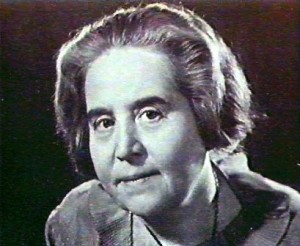 engages in a wonderful conversation about the work of German author Gertrude von le Forte who was a writer of novels, poems, and essays.  A convert  to Catholicism in 1926, most of  von le Forte work came after her conversion. In 1952 she won the Gottfried-Keller Prize, an esteemed Swiss literary award.
engages in a wonderful conversation about the work of German author Gertrude von le Forte who was a writer of novels, poems, and essays.  A convert  to Catholicism in 1926, most of  von le Forte work came after her conversion. In 1952 she won the Gottfried-Keller Prize, an esteemed Swiss literary award.
[powerpress]
Set during the French Revolution, this classic novella is based on the true story of the Carmelite nuns of Compiègne, who offered their lives for the preservation of the Church in France. The Song at the Scaffold was the original inspiration for the opera Dialogues of the Carmelites written by Francis Poulenc, which premiered in 1957. The opera was based on a libretto with this same title written by Georges Bernanos.
As Vivian points out in our discussion, von le Forte’s work is as relevant today as it was in the last century. In the course of our conversation, we discuss the influence of the Carmelite tradition and it’s influence on Edith Stein (St. Teresa Benedicta of the Cross) and Bl. John Paul II, as well the role of redemptive suffering in the life of the Christian.
 A novella in it’s truest sense, this book contains as much meaning as any tome made up 10x the pages. Â A NOT TO BE MISSED READ.
A novella in it’s truest sense, this book contains as much meaning as any tome made up 10x the pages. Â A NOT TO BE MISSED READ.
You can find it at Ignatius.com
One of the great Christian classics of all time. —Michael O’Brien, Author, Father Elijah
A poignant reminder that, for the Christian, fearlessness lies on the far side of Gethsemane and the Cross. —George Weigel, Author, Witness to Hope
Tags: carmelites, catholic, catholic podcast, catholic prayer, cathollc spirituality, Father Elijah, french revolution, george weigel, Gottfried Keller Prize, ignatius press, martyrdom
This entry was posted on Monday, February 6th, 2012 at 9:24 am
You can follow any responses to this entry through the RSS 2.0 feed.
Episode 4- The School of Prayer: Reflections on the teachings of Pope Benedict XVI –   Jacob wrestling with Angel.  The mystery of the name.  We have to let God ask us who we are or will you resist and remain isolated?  Our prayer is only going to be fruitful if we surrender ourselves to the question…who are you?  Like  Jacob, once we give over our name then God can begin to transfigure that name, or in other words, our persons to be more inline with His will, His love, His power.  Eventually, in prayer, we have to enter into the struggle…what is really going on in our souls, in our hearts and are our wrestling with God’s love.   We yield our identity to God’s love.
Jacob wrestling with Angel.  The mystery of the name.  We have to let God ask us who we are or will you resist and remain isolated?  Our prayer is only going to be fruitful if we surrender ourselves to the question…who are you?  Like  Jacob, once we give over our name then God can begin to transfigure that name, or in other words, our persons to be more inline with His will, His love, His power.  Eventually, in prayer, we have to enter into the struggle…what is really going on in our souls, in our hearts and are our wrestling with God’s love.   We yield our identity to God’s love.
The wounding of Jacob by the Angel. Â It is the symbol of the wound, the opening of the self, which symbolizes an entryway to vulnerability…God is deeply affecting us. Â God’s love, concern, and fascination with us is how He enters into our being and “wounds” us. Â If we could “be still” and allow Him to love us, He becomes victorious within us.
The name we yield to God is our heart…the core of our being.  At Baptism, we give over our name, so we give the power over to God over us.  How the “wrestling occurs” and if we stay in it long enough God “wounds” us, into His hands we commend our “spirits”.  How does Jesus transform even this event?
[powerpress]
Deacon James Keating, PhD, the director of Theological Formation for the Institute for Priestly Formation, located at Creighton University, in Omaha.
From  Pope Benedict’s 4 audience on prayer:
Dear brothers and sisters, our entire lives are like this long night of struggle and prayer, spent in desiring and asking for God’s blessing, which cannot be grabbed or won through our own strength but must be received with humility from him as a gratuitous gift that ultimately allows us to recognize the Lord’s face. And when this happens, our entire reality changes; we receive a new name and God’s blessing. And, what is more: Jacob, who receives a new name, and becomes Israel, also gives a new name to the place where he wrestled with God, where he prayed; he renames it Penuel, which means: “The Face of Godâ€. With this name he recognizes that this place is filled with the Lord’s presence, making that land sacred and thus leaving a memorial of that mysterious encounter with God. Whoever allows himself to be blessed by God, who abandons himself to God, who permits himself to be transformed by God, renders a blessing to the world. May the Lord help us to fight the good fight of the faith (cf. 1 Tim 6:12; 2 Tim 4:7) and to ask, in prayer, for his blessing, that he may renew us in the expectation of beholding his Face. Thank you.
For more information on the “Institute of Priestly Formation†and for other material available by Deacon Keating, just click here
Don’t forget to pickup a copy of “Communion with Christ†, it is one of the best audio sets on prayer…ever!
Check out Deacon Keating’s “Discerning Heart†page
Tags: catholic, catholic podcast, catholic prayer, cathollc spirituality, jacob, james keating, pope benedict, pope benedict xvi, prayer
This entry was posted on Sunday, February 5th, 2012 at 2:12 pm
You can follow any responses to this entry through the RSS 2.0 feed.
Episode 5 Beginning to Pray: Â “Heaven in Faith” Â Day 3 Prayer 1 – “We will come to him and make our home in him“
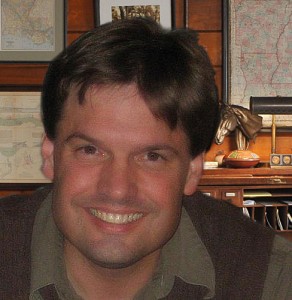
[powerpress]
Dr. Anthony Lilles is a Catholic husband and father of three teaching Spiritual Theology at St. John Vianney Theological Seminary. He  teaches spiritual theology and spiritual direction to transitional deacons, and the spiritual classics to the men who enter the Spirituality Year, a year of prayer in preparation for seminary formation.  He is the author of the “Beginning to Pray”  catholic blog spot.
From “Heaven in Faith: Day 3 Prayer 1” found in The Complete Works vol 1:
8. … “Each incident, each event, each suffering, as well as each joy, is a sacrament which gives God to it; so it no longer makes a distinction between these things; Â it surmounts them, goes beyond them to rest in its Master, above all things. Â It “exalts” Him high on the “mountain of its heart,” yes, “higher than His gifts, His consolation, higher than the sweetness that descends from Him.” “The property of love is never to seek self, to keep back nothing, but to give everything to the one it loves.” Â “Blessed the soul that loves” in truth; “the Lord has become its captive through love”!
For other episodes in the series visit the Discerning Hearts page for Dr. Anthony Lilles
We would like to offer heartfelt thanks to
Miriam Gutierrez for providing for us “the voice” of Blessed Elizabeth for this series
Tags: blessed elizabeth of the trinity, carmelite, catholic, catholic podcast, catholic prayer, cathollc spirituality, heaven in faith
This entry was posted on Sunday, February 5th, 2012 at 9:48 am
You can follow any responses to this entry through the RSS 2.0 feed.
[powerpress]
Msgr. Esseff reflects on Matthew chap 18 v 21-35.  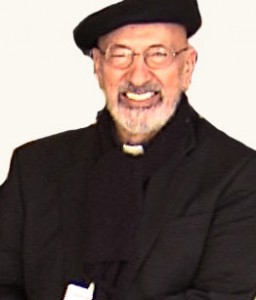 He shares the stories of a woman named Immaculee from Rwanda and young girl named Maria from Lebanon and the damage done by the hatred which is manifested in the world.  We have a capacity for communion…24 hours every day, 7 days a week.  How does that look in the
He shares the stories of a woman named Immaculee from Rwanda and young girl named Maria from Lebanon and the damage done by the hatred which is manifested in the world.  We have a capacity for communion…24 hours every day, 7 days a week.  How does that look in the 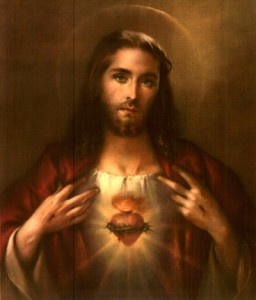 relationship found in marriage?  From childhood, there are deep wounds we carry from our parents…from siblings…or from others. What can cause those wounds?  The bitterness and resentment that we carry…the damage it does to us.  What is the remedy?  The joy of forgiveness…and forgetting.  Msgr. Esseff shares a poignant story of a man named John, and how he came to forgive what many would find “unforgivable”.
relationship found in marriage? Â From childhood, there are deep wounds we carry from our parents…from siblings…or from others. What can cause those wounds? Â The bitterness and resentment that we carry…the damage it does to us. Â What is the remedy? Â The joy of forgiveness…and forgetting. Â Msgr. Esseff shares a poignant story of a man named John, and how he came to forgive what many would find “unforgivable”.
This is the prayer mentioned by Msgr. Esseff in the talk...click here
Be sure to visit Msgr. Esseff’s website….”Building A Kingdom of Love”
Tags: catholic, catholic podcast, catholic prayer, cathollc spirituality, forgiveness, msgr. john esseff, reconciliation, unforgiveness
This entry was posted on Saturday, February 4th, 2012 at 3:49 pm
You can follow any responses to this entry through the RSS 2.0 feed.
VATICAN CITY, 1 FEB 2012 (VIS) – This morning in the Paul VI Hall the Holy Father received thousands of pilgrims from around the world in his weekly general audience. As part of a series of catecheses dedicated to the prayers pronounced by Christ, he focused his remarks on Jesus’ prayer in the Garden of Gethsemane.
Mark the Evangelist narrates how, following the Last Supper, Jesus went to the Mount of Olives and readied Himself for personal prayer. “But this time”, the Pope said, “something new occurred; it seemed that He did not want to remain alone. Many times in the past Jesus had moved away from the crowds, even from His own disciples. … However, in Gethsemane he invited Peter, James and John to stay close by; the same disciples who had accompanied Him during the Transfiguration.
“The proximity of these three during the prayer at Gethsemane is significant”, Benedict XVI added. It represents “a request for solidarity at the moment in which He felt the approach of death. Above all it was a closeness in prayer, an expression of unity with Him at the moment in which He was preparing to accomplish the Father’s will to the end, an invitation to all disciples to follow Him on the path of the Cross”.
Jesus’ words to the three disciples – “I am deeply grieved, even to death; remain here and keep awake” – show that He was feeling “fear and anguish at that ‘Hour’, experiencing the ultimate profound solitude as God’s plan was being accomplished. Jesus fear and anguish comprehend all the horror that man feels at the prospect of his own death, its inexorable certainty and the perception of the burden of evil which affects our lives”.
Having invited His disciples to keep awake, Jesus moved away from them. Referring to the Gospel of St. Mark, the Pope noted that Jesus “threw Himself to the ground: a position for prayer which expresses obedience to the Father’s will, an abandonment of self with complete trust in Him”. Jesus then asks the Father that, if possible, the hour might pass from Him. “This is not just the fear and anguish of man in the face of death”, the Holy Father explained, “but the distress of the Son of God Who sees the terrible accumulation of evil He must take upon Himself, in order to overcome it and deprive it of power”.
In this context, Benedict XVI invited the faithful to pray to God, placing before Him “our fatigue, the suffering of certain situations and of certain days, our daily struggle to follow Him and to be Christians, and the burden of evil we see within and around us, that He may give us hope, make us aware of His closeness and give us a little light on life’s journey”.
Returning then to Jesus’ prayer, the Pope focused on “three revealing passages” in Christ’s words: “Abba, Father, for you all things are possible; remove this cup from me; yet, not what I want but what you want”. Firstly, Benedict XVI said, the Aramaic word “Abba” is used by children to address their fathers, “therefore it express Jesus relationship with God the
Father, a relationship of tenderness, affection and trust”. Secondly, Jesus’ words contain an acknowledgment of the Father’s omnipotence “introducing a request in which, once again, we see the drama of Jesus’ human will in the face of death and evil. … Yet the third expression … is the decisive one, in which the human will adheres fully to the divine will. … Jesus tells us that only by conforming their will to the divine will can human beings achieve their true stature and become ‘divine’. … This is what Jesus does in Gethsemane. By transferring human will to the divine will the true man is born and we are redeemed”.
When we pray the Our Father “we ask the Lord that ‘your will be done, on earth as it is in heaven’. In other words, we recognise that God has a will for us and with us, that God has a will for our lives and, each day, this must increasingly become the reference point for our desires and our existence. We also recognise that … ‘earth’ becomes ‘heaven’ – the place where love, goodness, truth and divine beauty are present – only if the will of God is done”.
In our prayers “we must learn to have greater trust in Divine Providence, to ask God for the strength to abandon our own selves in order to renew our ‘yes’, to repeat to Him ‘your will be done’, to conform our will to His. This is a prayer we must repeat every day, because it is not always easy to entrust oneself to the will of God”.
The Gospel says that the disciples were unable to remain awake for Christ, and Pope Benedict concluded his catechesis by saying: “Let us ask the Lord for the power to keep awake for Him in prayer, to follow the will of God every day even if He speaks of the Cross, to live in ever increasing intimacy with the Lord and bring a little of God’s ‘heaven’ to this ‘earth'”.
Following the catechesis the Holy Father delivered greetings in a number of languages to the pilgrims filling the Paul VI Hall. They included a group of British military chaplains, faithful from Hong Kong and South America, bishops friends of the Sant’Egidio Community from Europe, Asia and Africa, as well as young people and the sick.
AG/ VIS 20120201 (940)
Tags: benedict xvi, catholic, catholic podcast, catholic prayer, cathollc spirituality, pope benedict, pope benedict xvi, prayer
This entry was posted on Saturday, February 4th, 2012 at 12:55 am
You can follow any responses to this entry through the RSS 2.0 feed.

